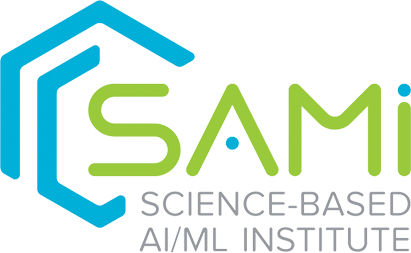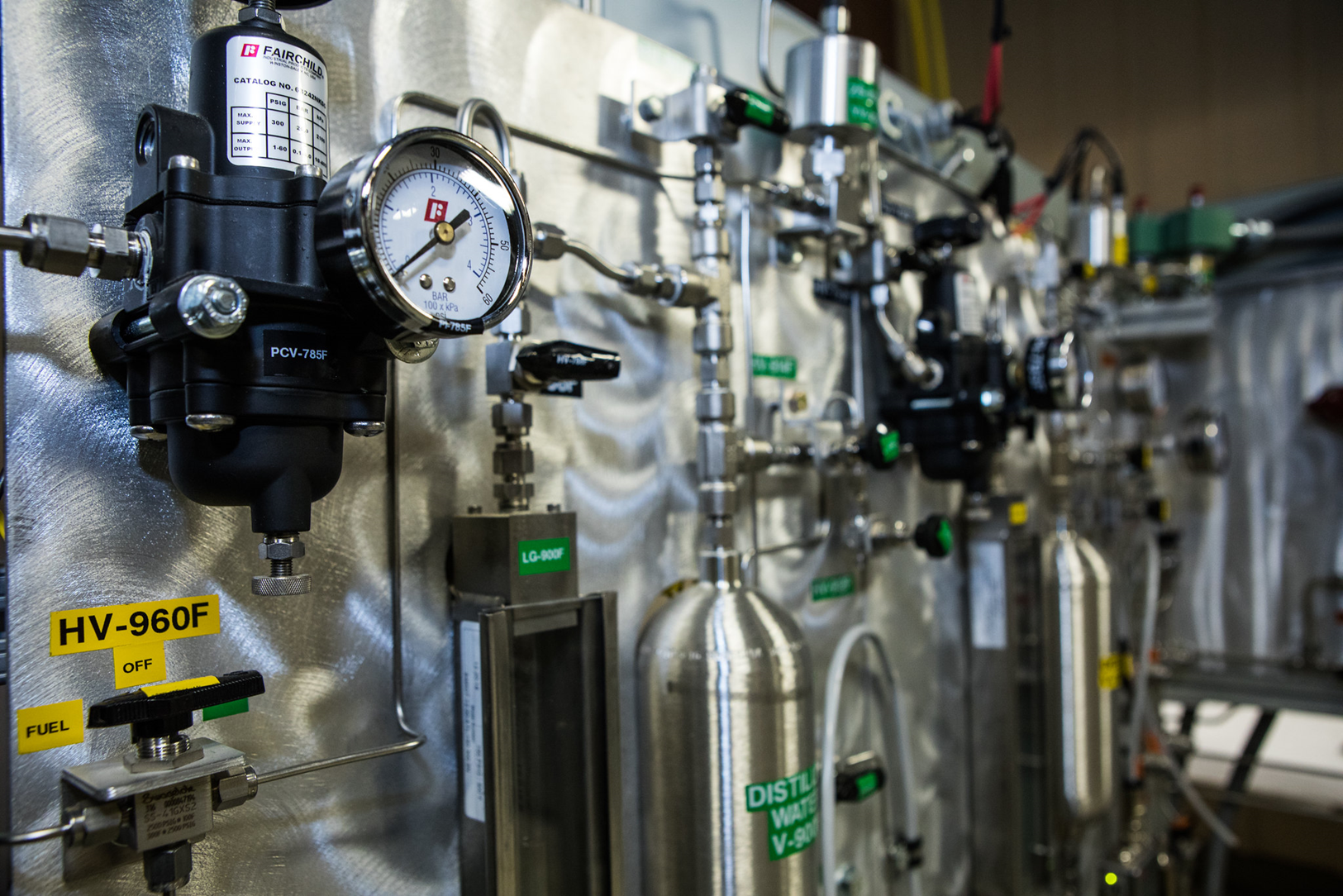Science-based AI/ML Institute (SAMI)

About SAMI
The Science-based Artificial Intelligence and Machine Learning Institute (SAMI) leverages science-based models, artificial intelligence, and machine learning (AI/ML) methods, data analytics, and high-performance computing to accelerate applied technology development for development for efficient and affordable energy production and utilization. These advances empower NETL to push the frontiers of AI technology and create next generation architectures, tools, and approaches, expand partnerships to advance the development and adoption of AI, and foster AI workforce development. The Institute combines the expertise of NETL’s energy computational scientists, data scientists, and subject matter experts with strategic partners to enable AI-driven solutions and support to applied energy science and other strategic objectives within DOE’s and NETL's missions.

Capabilities
NETL researchers have expertise in employing a range of AI-related methods to solve applied energy challenges. These methods range from data analytics to classical AI/ML to deep learning to more novel ML techniques.

Experience
NETL has distinctive strengths in science-based modeling and data curation, and a deep commitment to data integrity and maintaining consistent practices.
SAMI researchers are utilizing AI/ML techniques to dramatically accelerate the development of technologies critical to minimizing environmental impacts of fossil fuels while working toward net-zero emissions. Science-based AI/ML modeling injects scientific knowledge and puts humans-in-the-loop by leveraging the data resources with advanced, applied energy models and AI/ML science to derive breakthrough technology innovations.
Over recent decades, NETL has produced a suite of science-based computational tools to accelerate technology maturation and confront some of the most difficult energy challenges. These tools utilize a combination of expertise in scientific knowledge, big data science, machine learning, and computational modeling to create award-winning tools, including:
- Science-based modeling (see MFiX, SMART, XMAT, IDAES, CIIAM, CORD for more)
- Research data curation and management capabilities (e.g., EDX)
These tools span multiple projects across the Lab, including multiphase flow science, materials discovery and qualification, geospatial and subsurface geologic understanding and visualization, and energy system optimization.
Our Unique Experience
SAMI continues to support the growth of AI/ML at NETL to enable breakthroughs that meet known and emerging challenges in applied energy and other focus areas within DOE's and NETL’s mission.
SAMI leverages and enhances its smart data platform for supporting the entire life cycle of data with secure, private, collaborative workspaces for research projects, called EDX++. SAMI designs tools to curate data from the initiation to the end of a project.
SAMI focuses on science-based AI/ML modeling to inject scientific knowledge and put humans in the loop by leveraging data resources with advanced, applied energy models, and AI/ML science to derive breakthrough technology innovations for materials, subsurface, the environment, energy production, infrastructure, smart cities, energy-water systems, and much more.
SAMI develops foundational standards and platforms for the responsible and sustainable development and deployment of AI/ML, ensuring that tools work in an intended manner, optimize interpretability of high-quality data sets, and ensure trust in AI/ML across the energy sector.
SAMI enables researchers to accurately predict the viability of subsurface formations to store large volumes of carbon dioxide (CO2) safely and permanently.
SAMI supports the Science-informed Machine Learning for Accelerating Real-Time (SMART) Decisions in Subsurface Applications initiative, which is strategically aligned with DOE goals to achieve net-zero carbon emissions in the power sector by 2035 and the broader economy by 2050.
SAMI expedites development of transformational materials to ensure tomorrow’s power plants and transmission infrastructure can utilize new power sources such as hydrogen, enhance efficiencies at existing power plants and use waste streams and carbon ore in new manufacturing processes and development for efficient and affordable energy production.
SAMI develops and delivers data-generated physics-based models to predict material properties and component performance under extreme environments (temperature, atmosphere) and complex loading (cyclical, triaxial).
SAMI leverages AI/ML informed models to prevent hazards in existing operations and identify opportunities for offshore hydrocarbon infrastructure reuse.
Through data modeling efforts, SAMI experts are working to inform stakeholders on infrastructure longevity, geohazards such as submarine landslides or subsurface fluid flow events (known as kicks) and improve the ability to predict hurricanes and other environmental and man-made factors that create risk.




